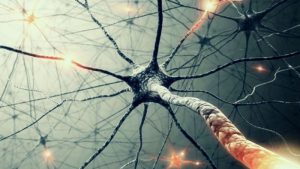AI & IoT will Change the World Sooner than you Think
 This article was written in 2016.
This article was written in 2016.
AI, artificial intelligence has made great leaps in the past few years and is poised to make greater leaps in the very near future. Two articles by Vivek Wadwa drove home that point for me this week.
The sentence in a recent article got me thinking was “What is required is a large number of examples so that the computer can teach itself.”
Where is all this data going to come from? Most internet data available to date are facts created from the distant and recent past. We’ve done a great job at building collections of useful information. But a newer technology, gaining steam by the day, IoT, is poised to give the human race more information than it has ever had. Many times more than even the massive amounts of data that have been collected in the past several decades of the internet’s existence.
The present-future matters more than the past
IoT does a great job of collecting data from the now. Knowing what’s happening now will be more important for human advancement than the past. Don’t misunderstand, knowing what not to do wrong from past mistakes is important, but shared data from real-time collection will change everything.
“What is required is a large number of examples so that the computer can teach itself.” Vivek Wadwa
As more and more of the things and places we interact with become “tagged” via IoT, the more we can catalog what our environment is doing to our lives. Not just our personal lives, but our collective lives.
When to see a Dr or when to Seek Shelter
Micro changes in our skins biology might alert us that we’ve about to get a massive flu, prompting us to get a remedy before it even hits. Other viral diseases could also be more controllable. Micro changes in the environment could alert us to seek shelter or alert authorities to impending disaster scenarios.
Think Human Cognition, but Faster
Human brains are great at putting together two unrelated pieces of information and drawing conclusions. We just don’t do it quickly. Being able to sort through and analyze massive amounts of information will allow AI to find congruencies faster than a human brain. How does AI come into play? With all this information to work with, AI will be able to get smarter and more independent, quickly sorting through droves of instantly available information and drawing conclusions at lightning speed. AI has reached the point where even the programmers and observers are not sure how it comes to some conclusions.
The Growing Abundance of Data
More sensors enter our day to day lives as we speak. Besides the search engines, shopping bots and honestly, who knows what else that’s watching us, real time information is pouring into the data pool. No one really knows how many Amazon Echo’s are in people’s homes, collecting data, constantly listening, but does it matter? If the companies that own them or the authorities wanted to listen to our every word, they could.
Beyond our ever present phones, watches, health bracelets, scales and soon car seats, steering wheels and more will be adding to the growing stream of usable “now” content.
AI that’s Proactive is Coming Sooner than you Think
Another factor that will drive AI is it’s interface. Voice will become the main interaction point with our devices and things around us, as it should. But until now our AI waits patiently until we initiate a question, but soon it will start the conversation. Imagine your Google Home device (coming soon) saying “John, you’re not feeling well today please avoid others and consider working from home.” Or, your connected home telling you to order peanut butter because your daughter just came home from college, it know’s because it either booked her flight or simply heard her voice for the first time in months.
It’s all about the Data
No matter how you approach IoT and AI they are connected in a way that makes both of them better. The data is the key. You may think you can escape by not opting in to all the surrounding data collection devices and collectors. Don’t bother, it won’t help. Eventually AI will have enough data to draw conclusions from public data of others with similar personas to know where you’re going, what you need and want. It’s a bit scary. Or is it? What do you think?







